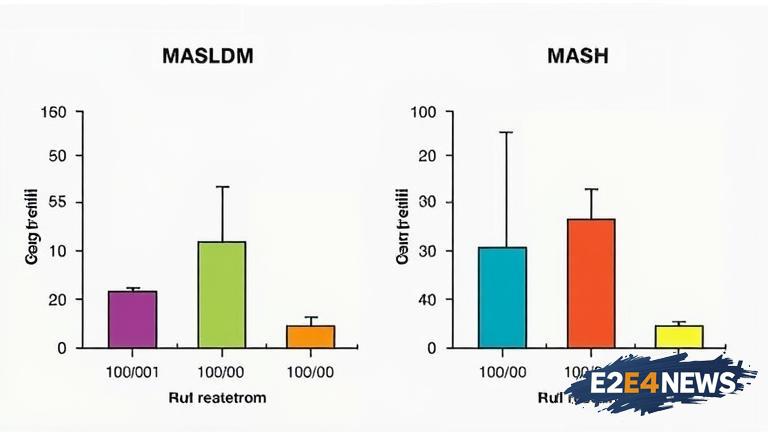A recent study has compared the efficacy of resmetirom and glucagon receptor agonists in treating metabolic associated steatohepatitis (MASH) and metabolic associated steatosis of the liver (MASLD). The study found that both treatments showed similar effectiveness in improving liver health and reducing liver fat. Resmetirom, a thyroid hormone receptor beta agonist, has been shown to have beneficial effects on liver health, including reducing liver fat and inflammation. Glucagon receptor agonists, on the other hand, have been found to improve glucose metabolism and reduce liver fat. The study suggests that both treatments may be viable options for patients with MASH and MASLD. The researchers analyzed data from several clinical trials and found that both resmetirom and glucagon receptor agonists resulted in significant reductions in liver fat and improvements in liver function. The study also found that both treatments were well-tolerated and had similar safety profiles. The findings of the study are significant, as MASH and MASLD are increasingly common conditions that can lead to serious liver damage and other health problems if left untreated. The study’s results suggest that clinicians may have multiple treatment options for patients with these conditions, which could improve patient outcomes. Further research is needed to fully understand the effects of resmetirom and glucagon receptor agonists on liver health and to determine the best treatment approaches for patients with MASH and MASLD. The study’s authors note that the findings have important implications for the treatment of metabolic liver disease. The researchers also suggest that future studies should investigate the potential benefits of combining resmetirom and glucagon receptor agonists with other treatments, such as lifestyle modifications and other medications. Overall, the study provides new insights into the treatment of MASH and MASLD and highlights the potential benefits of resmetirom and glucagon receptor agonists. The study’s findings are likely to be of interest to clinicians, researchers, and patients with metabolic liver disease. As the prevalence of MASH and MASLD continues to rise, the development of effective treatments is becoming increasingly important. The study’s results suggest that resmetirom and glucagon receptor agonists may be useful additions to the treatment arsenal for these conditions. The researchers conclude that their findings have significant implications for the management of metabolic liver disease and highlight the need for further research into the effects of resmetirom and glucagon receptor agonists on liver health.
